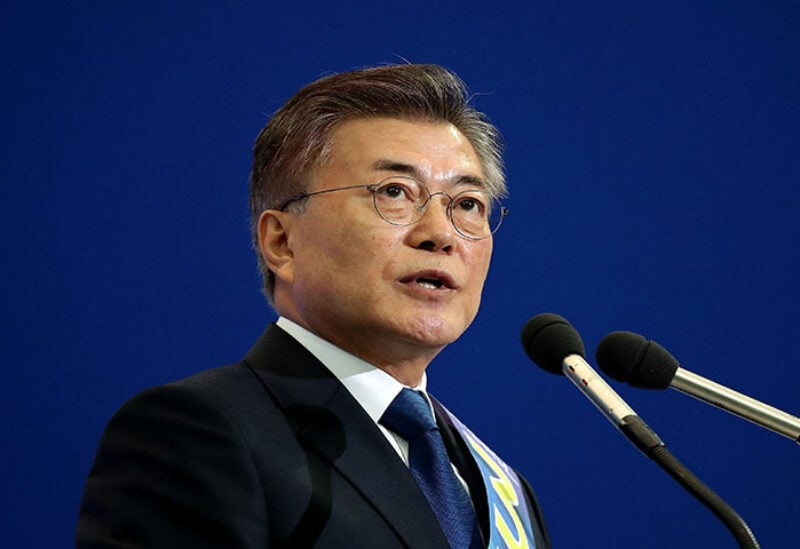
South Korean President Moon Jae-in
President Moon Jae-in of South Korea is scheduled to leave for the Group of Seven summit in Britain on Friday, where discussion of opposing China could overshadow Seoul’s ambitions to be regarded as a stronger participant on issues like climate change and the COVID-19 epidemic.
South Korea is one of several guest countries invited to the G7 meeting as the wealthy democracies attempt to demonstrate to the rest of the world that they can still work together to address major crises by donating hundreds of millions of COVID-19 vaccines to developing countries and pledging to slow climate change.
“At the G7, we will demonstrate our leadership in creating cooperative approaches to major global challenges such as health and climate change,” a senior presidential official told reporters.
Moon has hailed parts of South Korea’s pandemic responses as a global example, citing aggressive tracking and tracing, avoiding broad lockdowns while keeping cases low.
South Korea has committed to zero emissions by 2050 and presented a “Green New Deal” to harness investment in green technologies as a way to recover from the pandemic, as well as a pledge to stop funding coal projects across the region under Moon’s leadership.
However, discussions on free trade and combating Beijing’s expanding influence are set to be part of the summit. In the midst of a conflict with China, Australia, another summit guest, has called on the G7 to support WTO reform to combat the growing use of “economic coercion.”
Seoul has treaded a tight line in dealing with Beijing, South Korea’s largest trading partner and a country that has demonstrated a readiness to punish economically in the past, such as during a 2017 spat over US anti-missile systems installed in the country.
The presidential official did not mention China, but said that Moon would take part in discussions on “the need to reinforce the global supply chain and free trade.”
In South Korea, anti-China sentiment is at historic highs, and Moon’s ruling party is experiencing domestic pressure on the subject.
Last month, during his first meeting with US President Joe Biden, Moon stunned some observers by announcing that South Korea will engage with the US on “peace and stability in the Taiwan Strait,” a comment that garnered a warning from China not to interfere.
According to Ramon Pacheco Pardo, a Korea expert at King’s College London, the subtle shift to stronger public statements from Seoul appears to be due to several factors, including an increasing wariness of Beijing among South Koreans and Biden’s less bombastic approach than his predecessor Donald Trump.
“In his approach to China, Biden is more astute, focused on cooperation with like-minded countries and partners,” he said. “This provides adequate diplomatic cover for the Moon government to collaborate with Biden’s China strategy.”
According to Anthony Rinna, a senior editor with Sino-NK, a group that studies the Korean peninsula and its relations with neighbors such as China, the economic beating South Korea took during Moon’s first year in office hardened his party’s views on China to some extent, and broader anti-China sentiment in South Korea has since soared.
“With an election coming up in less than a year, the onus is on the ruling party to show people that it is capable of taking a suitably harsh position against China,” he said.